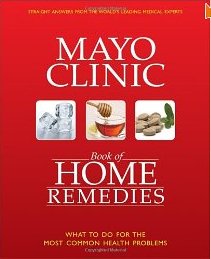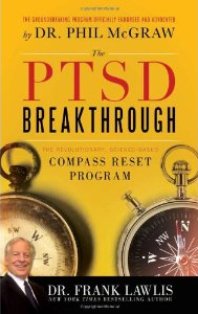January 21st, 2011 by KevinMD in Better Health Network, Opinion
2 Comments »

Many doctors roll their eyes whenever patients bring in a stack of research they printed out, stemming from a Google search of their symptoms. A piece by Dr. Zachary Meisel on TIME.com describes a familiar scenario:
The medical intern started her presentation with an eye roll. “The patient in Room 3 had some blood in the toilet bowl this morning and is here with a pile of Internet printouts listing all the crazy things she thinks she might have.”
The intern continued, “I think she has a hemorrhoid.”
“Another case of cyberchondria,” added the nurse behind me.
It’s time to stop debating whether patients should research their own symptoms. It’s happening already, and the medical profession would be better served to handle this new reality.
According to the Pew Internet and American Life Project, 61 percent of patients turn to the web to research health information. That number is from 2009, so presumably it’s higher today. Health information online is akin to the Wild, Wild West. Stories from questionable sites come up on Google as high — or higher — than information from reputable institutions. Read more »
*This blog post was originally published at KevinMD.com*
November 22nd, 2010 by RamonaBatesMD in Better Health Network, Health Policy, News, Opinion
No Comments »

Do you recall the severe rationing of food and water the Chilean miners had to endure to survive? The rationing was done to stretch their limited resources. I would argue the state of Arizona’s new policy to not cover organ transplants for patients on Arizona Health Care Cost Containment System (AHCCCS) or their version of Medicaid is a similar form of rationing.
AHCCCS, as many Medicaid programs, is underfunded. They are trying to operate on a limited budget. Something has to give. Sadly in this case, many (NPR reports 98) had already been granted approval for organ transplants which they may not receive.
Francisco Felix, 32, who due to hepatitis-C needs a liver transplant, is reported to have made it to the operating room, prepped and ready for his life-saving liver transplant when doctors told him the state’s Medicaid plan wouldn’t cover the procedure. The liver he was to receive went to someone else. Read more »
*This blog post was originally published at Suture for a Living*
October 7th, 2010 by Harriet Hall, M.D. in Better Health Network, Book Reviews, Health Tips, Opinion
No Comments »

 I write a lot of critical articles. It’s nice to be able to write a positive one for a change. I received a prepublication proof of The Mayo Clinic Book of Home Remedies: What to Do for the Most Common Health Problems. It is due to be released on October 26 and can be pre-ordered from Amazon.com. Since “quackademic” medicine is infiltrating our best institutions and organizations, I wasn’t sure I could trust even the prestigious Mayo Clinic. I was expecting some questionable recommendations for complementary and alternative medicine (CAM) treatments, but I found nothing in the book that I could seriously object to.
I write a lot of critical articles. It’s nice to be able to write a positive one for a change. I received a prepublication proof of The Mayo Clinic Book of Home Remedies: What to Do for the Most Common Health Problems. It is due to be released on October 26 and can be pre-ordered from Amazon.com. Since “quackademic” medicine is infiltrating our best institutions and organizations, I wasn’t sure I could trust even the prestigious Mayo Clinic. I was expecting some questionable recommendations for complementary and alternative medicine (CAM) treatments, but I found nothing in the book that I could seriously object to.
It is organized alphabetically, starting with acne and airplane ear and progressing through bedbugs, boils and bronchitis, dandruff, depression and diabetes to warts, wrinkles and wrist pain. Each entry consists of (1) a description of the problem and its symptoms, (2) treatments you can try at home, and (3) when to seek professional medical help. It concludes with a short section on emergency medicine that covers anaphylaxis, bleeding, burns, CPR, choking, fracture, heart attack, poisoning, seizure, shock and stroke.
Nowhere does it mention acupuncture, chiropractic, energy medicine, or homeopathy. It gives good, clear guidance about when a health problem should not be treated with home remedies. Its recommendations about diet and exercise are solid. It doesn’t recommend anything that can’t be supported by published studies and common sense. When it recommends herbal remedies and dietary supplements, it is cautious about what it claims. For instance, glucosamine and chondroitin are listed for osteoarthritis, but they point out that further study is required and they say “because the supplements may help and appear to be safe, it may not hurt to give them a try.” Not exactly a strong recommendation. Read more »
*This blog post was originally published at Science-Based Medicine*
September 23rd, 2010 by Harriet Hall, M.D. in Better Health Network, Book Reviews, Opinion, Quackery Exposed, Research
3 Comments »

 It infuriates me when someone misappropriates the word “science” to promote treatments that are not actually based on science. I have just read a book entitled The PTSD Breakthrough: The Revolutionary Science-Based Compass RESET Program by Dr. Frank Lawlis, a psychologist who is the chief content advisor for Dr Phil and The Doctors. There is very little science in the book and references are not provided. It amounts to an indiscriminate catalog of everything Dr. Lawlis can imagine that might help post-traumatic stress disorder (PTSD) patients.
It infuriates me when someone misappropriates the word “science” to promote treatments that are not actually based on science. I have just read a book entitled The PTSD Breakthrough: The Revolutionary Science-Based Compass RESET Program by Dr. Frank Lawlis, a psychologist who is the chief content advisor for Dr Phil and The Doctors. There is very little science in the book and references are not provided. It amounts to an indiscriminate catalog of everything Dr. Lawlis can imagine that might help post-traumatic stress disorder (PTSD) patients.
He describes recent brain imaging studies suggesting that signs of traumatic brain injury are associated with PTSD. He thinks PTSD can no longer be considered a psychological condition, but must be approached as a complex biological, physical, psychological, and spiritual condition. He says many of these patients have brain damage. Read more »
*This blog post was originally published at Science-Based Medicine*
September 13th, 2010 by Iltifat Husain, M.D. in Better Health Network, News, Research
No Comments »

 An article in The Guardian, the popular British newspaper, on an iPhone medical app that attempts to replicate the stethoscope starts out as:
An article in The Guardian, the popular British newspaper, on an iPhone medical app that attempts to replicate the stethoscope starts out as:
The stethoscope — medical icon, lifesaver and doctor’s best friend — is disappearing from hospitals across the world as physicians increasingly use their smartphones to monitor patients’ heartbeats.
More than 3 million doctors have downloaded a 59p application — invented by Peter Bentley, a researcher from University College London — which turns an Apple iPhone into a stethoscope.
It’s obvious to those intimate with medicine that “3 million doctors” using this app was a ridiculous number. Unfortunately, it took The Guardian one full week to realize this egregious error — they meant to say “3 million overall downloads” –- but by then the news had been disseminated to hundreds of news websites, blogs, and potentially millions of readers. Leading readers to infer that with “3 million physician downloads” the medical community had signed off on the app.
The story went on to say:
Experts say the software, a major advance in medical technology, has saved lives and enabled doctors in remote areas to access specialist expertise.
Lets be clear what this application does. Read more »
*This blog post was originally published at iMedicalApps*






 It infuriates me when someone misappropriates the word “science” to promote treatments that are not actually based on science. I have just read a book entitled
It infuriates me when someone misappropriates the word “science” to promote treatments that are not actually based on science. I have just read a book entitled 











